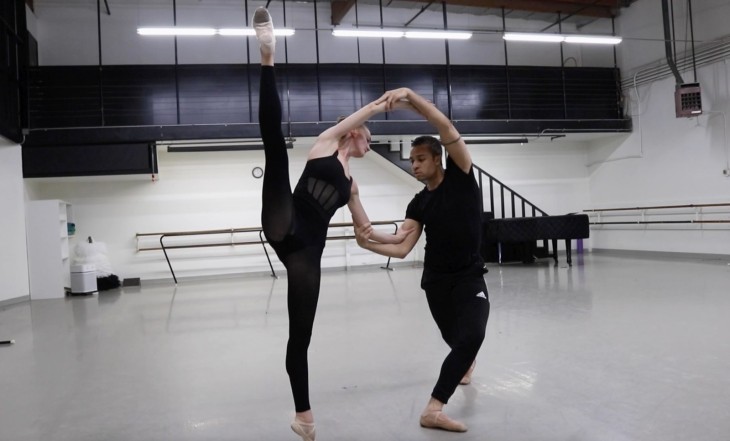DR. MAO SHING NI
SPECIAL TO THE MIRROR
Are you suffering from headaches, neck tightness and pain, or jaw tightness? Do you feel your ears stuffed or ringing, dizziness or spacey? Do you often wake up feeling tired, even though you sleep more than eight hour on average? If you experience any or all of the above symptoms you may be suffering from TMD—temporomandibular disorder.
If that sounds like a mouthful, well it is because it has to do with the joints that operate the opening and closing of your mouth. The temporomandibular joint (TMJ) is a complex joint where the lower jaw hinges with the upper jaw. People often take their jaws for granted, unaware of their importance in enabling eating which involves biting, chewing and swallowing as well as speaking, singing, laughing, and even yawning.
In order to have a normal and healthy functioning jaw, all the muscles and nerves must work together to help keep the jaws aligned and working properly. When malfunction occurs—called TMD, there are often symptoms involving the muscles around the neck, scalp and jaws causing headaches, jaw pain, and neck and shoulder pain.
Aside from causing headaches and neck pains, tight jaw muscles also wrap around behind the ears and the throat, potentially blocking proper drainage from the ear through the Eustachian Tube, leading to sensations in the ears like fullness and hearing problems like ringing or swishing sounds. Moreover, the tight muscle around the throat can clamp down on the carotid arteries, temporarily depriving the brain of blood and oxygen therefore causing dizziness.
That’s not all, if the jaw fits incorrectly and the muscles tighten around the throat, narrowing the upper throat opening, this can allow one’s tongue to fall back and block the opening, leading to obstructive sleep apnea. Sleep apnea is when you keep waking up multiple times throughout the night because you do not get enough oxygen when you sleep. Besides feeling tired upon waking, long-term consequence of sleep apnea can include increased risks for heart attack, stroke, and early onset of dementia.
There are many causes of TMD ranging from head or jaw trauma to stress and tension to nail biting. About half of the population clench or grind their teeth at night during sleep. This is more common in women than in men, but the effects are the same—headache, neck tightness, and tiredness upon waking.
Here are some simple ways to help you and your loved ones relieve the TMD.
Stretch your jaws and neck.
Open your mouth and put the thumb of one hand under your upper front teeth and the index finger of the other hand on the top of the lower front teeth. Gently pulling the upper and lower teeth apart. Stretch your neck and tilt your head while holding with one hand and gently pulling down to one side and then switch hands and do the same to the other side. Do each stretch six times on each side, six times a day.
Avoid hard and sticky foods.
Overworking your jaws is not dissimilar to pounding on your knees or hips on the tennis court. Wear and tear happens with the TMJ sometimes more than other joints in the body. Avoid chewing gum, biting down on hard candy, eating caramel or simply taking a large bite of an apple. You might enjoy it at the moment but your jaws will not let you forget it.
Reframe and relax.
Feeling pressured, anxious and tense creates tightness in your muscles, especially around your neck and shoulders—the primitive fight-flight response. Stress is due to perception of danger so if you can look at or reframe any situation differently you will succeed in neutralizing the tension and let go.
Get Acupuncture.
Acupuncture has been proven effective in relieving pain, relaxing muscles, and increasing endorphins. My associates and I at the Tao of Wellness treat TMD and related problems on a regular basis with acupuncture with very favorable results. Many patients with chronic headaches and neck pain are no longer suffering with their conditions.
See a TMD specialist for sleep apnea. If you believe you have sleep apnea, contact an oral-facial pain specialist who is trained in realigning the jaws with customized mouth splint. Often by opening up the airways patients are able to breath normally again during sleep. This is a viable option to explore and a possible alternative to the C-PAP breathing mask. For referral to a specialist in your area, go to www.aaop.org
Don’t let a poorly aligned or tight jaw affect the quality of your life. Many common health complaints are due to TMD and once diagnosed and treated, many people’s health have improved dramatically. May you live long, live strong and live healthy!
Dr. Mao Shing Ni, best known as Dr. Mao, is a bestselling author, doctor of Oriental Medicine and board certified anti-aging expert. He practices acupuncture, nutrition and Chinese medicine with his associates at the Tao of Wellness in Santa Monica, a Wellness Medicine group that won the “L.A.’s Best” Award. Dr. Mao and his brother, Dr. Daoshing Ni founded Tao of Wellness in Santa Monica over 25 years ago. In addition, he is the cofounder and Chancellor of Yo San University in Venice/Marina del Rey. To subscribe to a free newsletter please visit www.taoofwellness.com To make an appointment for evaluation and treatment please call 310.917.2200 or you can email Dr. Mao at contact@taoofwellness.com


























